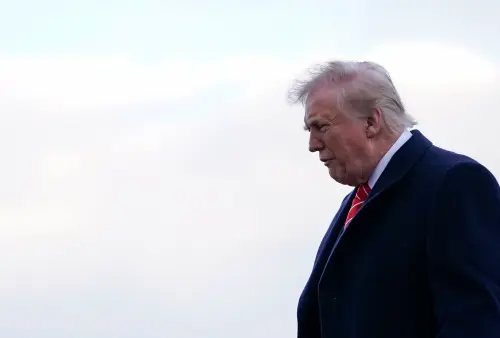U.S. President Trump is expected to exclude a set of sector-specific tariffs in an announcement scheduled for April 2, according to reports from the Wall Street Journal and Bloomberg. However, a Trump administration official cautioned that the situation is fluid and no final decisions have been made.
Trump himself will ultimately determine the details of the April 2 announcement, which he has referred to as "Liberation Day." The initiative aims to reduce a $1.2 trillion global goods trade deficit by increasing U.S. tariffs to match those imposed by other countries and counteracting their non-tariff trade barriers.
In February, Trump indicated plans to impose auto tariffs "in the neighborhood of 25%" and similar duties on semiconductors and pharmaceutical imports. However, he later agreed to some auto tariffs following pressure from various stakeholders for a waiver.
Reports from earlier in the week indicated that the implementation of sector-specific tariffs may be delayed, citing an administration official.
Trump's aggressive tariff strategy, which has unfolded since his January inauguration, has been characterized by threats, reversals, and delays, sometimes occurring just hours before deadlines. So far, he has imposed new 20% duties on Chinese imports, fully restored 25% tariffs on global steel and aluminum imports, and enacted 25% tariffs on imports from Canada and Mexico that do not comply with North American trade agreements related to the U.S. fentanyl overdose crisis.
Two senior officials—Treasury Secretary Scott Bessent and top White House Economic Adviser Kevin Hassett—indicated last week that the administration is likely to focus the upcoming announcement on a narrower group of countries with significant trade surpluses and high tariff and non-tariff barriers. Bessent referred to these countries as the "Dirty 15," while Hassett suggested the focus would be on 10 to 15 countries.
A spokesperson for the U.S. Trade Representative's office, which is leading efforts to determine reciprocal tariffs, did not immediately respond to requests for comment. Similarly, a White House spokesperson also did not provide a response.
In a recent call regarding reciprocal tariffs, the USTR expressed particular interest in submissions from the largest U.S. trade partners, especially those with the highest goods trade surpluses. The USTR identified Argentina, Australia, Brazil, Canada, China, the European Union, India, Indonesia, Japan, Korea, Malaysia, Mexico, Russia, Saudi Arabia, South Africa, Switzerland, Taiwan, Thailand, Turkey, Britain, and Vietnam as countries of particular interest, noting they account for 88% of total goods trade with the U.S.
